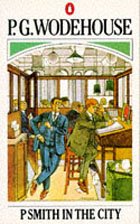 I've joined a gym this last week and apart from the fact that I keep on dropping my mp3 player I find it an absolutely ideal time to listen to the audiobooks that I never quite had patience for previously.
I've joined a gym this last week and apart from the fact that I keep on dropping my mp3 player I find it an absolutely ideal time to listen to the audiobooks that I never quite had patience for previously.There aren't that many of these but I acquired from audible The American Boy, Night Watch, and The Time-travellers Wife and have never actually finished any of them. First however I have gone for a book that I've actually read.
A Tale of Two Cities - Charles Dickens - Read Martin Jarvis
Book - Well its Dickens. I don't feel qualified to give a mark out of 5 to Dickens. If you love him you love him. If you don't then generally you can't stand him. I'm kind of sitting on the fence. When I last read him I found him immensely tedious but I'm willing to give him another pop since when I last read him I was 15 years old.
Reading
Primary Voice - The narrator I guess. If audiobooks were rock music Martin Jarvis would be some sort of legend and at that some legend that died young to protect his genius. The narration here is done in his usual laconic style and I could listen to that all day (4/5)
Secondary Voices - These are what makes the book for me. Packed with character and distinct. (5/5)





